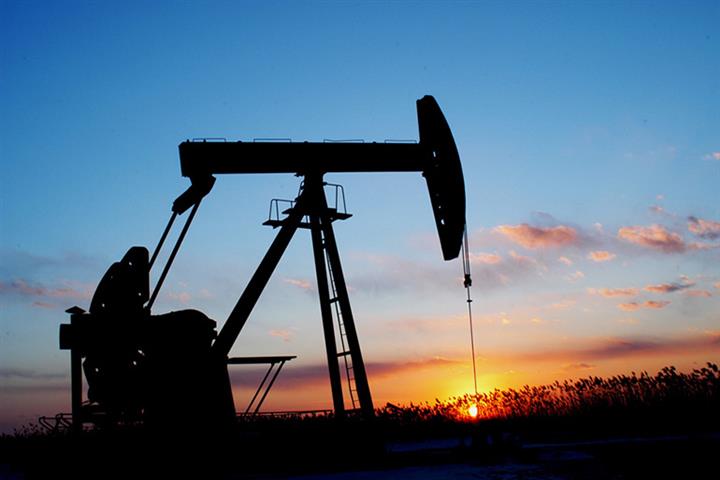 How A Struggle for Energy is Set to Reshape Geopolitical Tectonics
How A Struggle for Energy is Set to Reshape Geopolitical Tectonics(Yicai Global) March 21 -- It has been reported by Reuters on March 21st that European countries are contemplating imposing an oil embargo on Russia in response to the crisis in Ukraine. Despite being heavily reliant on Russian oil, the EU is determined to tighten sanctions on Moscow in the bid to force them to the negotiating table, whilst also lessening their “strategic dependency” on the country. It has been quite obvious since the conflict began, 4 weeks ago, that the situation is having a detrimental impact on energy markets has sent the price of crude persistently above USD100 per barrel.
This energy crisis has immediately seen western nations effectively “pile into” diplomacy with oil and gas exporting states in the Middle East to scramble for new supplies to offset the damage. Germany has signed a new liquid natural gas deal with Qatar, whilst British Prime Minister Boris Johnson has announced plans to visit Saudi Arabia and the United Arab Emirates. The US has also attempted to contact both countries, who have in fact snubbed the Presidential administration’s efforts. This also comes amidst a goal to re-establish the “Iran deal” or “joint comprehensive plan of action” to allow Iranian oil back into the market.
The trend is clear. The immediate and lasting consequences of the conflict in Ukraine is that western countries are now reorientating back towards the Middle East, a region they had sought to minimize scope in to focus on the “Indo-Pacific”, in the bid to maintain energy security, with oil and liquid natural gas (LNG) once again increasing in the scope of strategically pivotal resources. The political consequences of such a scenario are far too early to determine, but it should be evident that such will leave western countries in a weaker position collectively, strengthen the political hand of Gulf States, and may result in greater interventions against it in the future, all of which may create collision courses with China
Understanding the politics of the Middle East
The 20th century heralded a revolutionary change in the global economy as the advent of petroleum-powered automobiles and ships created an unprecedented demand for crude oil, which began to displace coal as the most critical resource of the industrial era. In these changing circumstances, western powers advanced into the Middle East and shaped a political order based on their own strategic needs and preferences. Upon carving up the former Ottoman lands in the Sykes-Picot agreement of 1917, France and Britain redrew the map of the Middle East and created a system of newly independent states designed to facilitate their goals.
Although some of these states, such as Iraq and Syria, succumbed to obvious political instability, the Gulf sheikdoms of Kuwait, Oman, Qatar, the United Arab Emirates, as well as the Kingdom of Saudi Arabia, all emerged and became energy-exporting states who maintained their independence through establishing “patron-client” relationships with the western powers, later including the United States. These countries would receive military protection in exchange for granting access to their resources, which would in turn enrich them. They would, in turn, work with the west as strategic partners in combatting revolutionary states which sought to expel them from the region, including Nasser’s Egypt, Saddam Hussein’s Iraq, Ba’athist Syria, and Post-Revolutionary Iran.
However, this longstanding political arrangement is starting to shift. First of all, the United States has accelerated its own energy independence. Secondly, China is now a larger market for these countries than the west itself owing to surging energy demands and thirdly, western politics has attempted to shift from the Middle East. In January 2022, the US unsuccessfully attempted the UAE dump Huawei from its 5G networks in exchange for receiving F-35s. The bid failed, underlying the growing closeness of the gulf to Beijing, with their leaders also having attended the Winter Olympics. Talks are also ongoing on a free trade agreement between China and these gulf countries.
Implications of a changing world
The Ukraine crisis however has been a world-changing political event which will reshape the political layout of the Middle East. It is too early to affirm exactly how, but it should be noted with caution that the bid to try and force Russia out of western markets, combined with soaring prices, has the immediate implication of pulling these countries back into the region. It should be noted from history that any oil-producing state in the Middle East which does not heed western objectives has been subject to regime change operations. The Iraq war in 2003, the 1953 coup against Iran’s government by the CIA, and the deposing of Muammar Gaddafi in Libya are just a few examples of this. If the Gulf States’ relationships with the US deteriorate further, it could be a strong political turning point.
For China, this inevitably means a deeper engagement in the Middle East than previously, with the region being critical to its own development needs and energy security. With China upholding a “non-interference” approach to the region and avoiding taking sides in regional conflicts, it could nonetheless be sensitive to any changes or upheavals from the west in the pursuit of oil. Beijing is likely to further fortify its relationships with the Gulf states, its strategic partnership with Iran as its oil returns to legitimate markets, as well as Iraq too. It must be ready for the Middle East which the west, has long established a political order to serve their interests, will become increasingly anxious about losing influence, which will make every potential conflict and unrest in this part of the world, already well known for it, extremely high stakes.